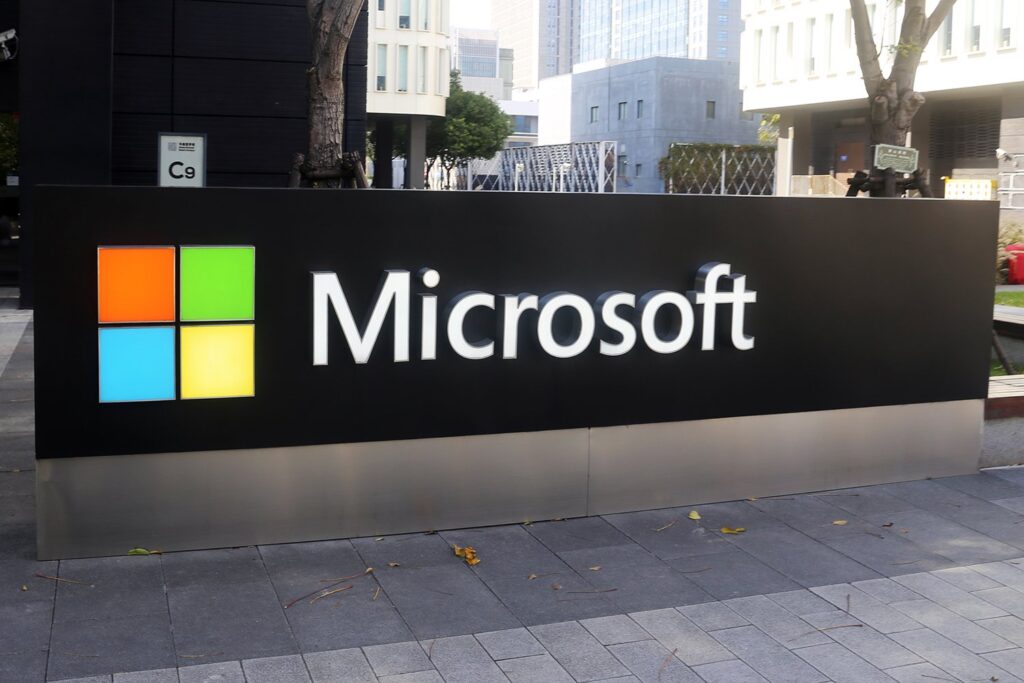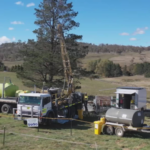TD Cowen noticed Microsoft doing something strange on Friday. The Open AI partner and tech giant appeared to be cancelling data center leases. According to the market analysts, this is part of a wider pattern. TD Cowen said Microsoft had an “oversupply” problem. It’s another datapoint that points to Big Tech’s nervousness around its big bet on AI.
TD Cowen published its quick take on February 21 and said its research into Microsoft’s data center business had turned up something interesting. “Our channel checks indicate that [Microsoft] has 1) cancelled leases in the U.S. totalling ‘a couple of hundreds [megawatts]’ with at least two private data center operators, 2) has pulled back on the conversion of [statements of qualification] to leases, and 3) has re-allocated a considerable portion of its international spend to the U.S.”
A statement of qualification or SOQ is a precursor to the signing of a lease. TD Cowen noted that the conversion rate of an SOQ into a signed lease is almost 100% so it’s odd for the tech giant to kill them. It could be a negotiation tactic or it could be a sign of a wider market shift. “When coupled with our prior channel checks, it points to a potential oversupply position for [Microsoft,]” TD Cowen said in its quick take.
The leases aren’t the only sign that Microsoft is cooling down its AI spend. “Microsoft walked away from multiple +100MW deals in multiple markets that were in early/ mid stages of negotiations, let a +1GW of [Letters of Intent] on larger footprint sites expire, and walked away from at least five land parcels that it had under construction in multiple Tier 1 markets,” TD Cowen said.
Part of what’s going on is that Microsoft, like other tech companies, is promising to do more business in the U.S. following the election of Donald Trump. America and the markets are waiting with bated breath to see what effects Trump’s tariffs and presidency will have on the market. He’s deregulating AI but he’s also making everything more expensive. When the world becomes more uncertain, companies spend less.
In January Microsoft promised that it would spend $80 billion on data centers in America. It’s also gone all in on small modular nuclear reactors to power these data centers and is even working on spinning up a long-dormant reactor at Three Mile Island. But it also paused construction on a data center meant to service Open AI in Wisconsin earlier this year, leaving $3.3 billion in limbo.
Microsoft has a hand in Open AI, which makes the popular ChatGPT. But it also owns CoPilot, a service it’s been trying to force on Windows and Office users. Everyone hates it. It runs Bing, an also-ran search engine that’s incorporating more and more AI slop that everyone also hates.
CEO Satya Nadella pumped the brakes on AI hype in a podcast appearance last week, too. Nadella told Dwarkesh Patel that he didn’t buy into the idea of artificial general intelligence—something OpenAI founder Sam Altman has been bullish on—and said it was time for AI to start showing the market some returns.
According to TD Cowen, the signals all point to a reduction in AI-related spending from Microsoft. “The magnitude of both potential data center capacity it walked away from and the decision to pullback on land acquisition (which supports core long-term capacity growth) in our view indicates the loss of a major demand signal that Microsoft was originally responding to and that we believe the shift in their appetite for capacity is tied to OpenAI,” it said.
Microsoft pushed back on some of this later when it talked to the business press. “While we may strategically pace or adjust our infrastructure in some areas, we will continue to grow strongly in all regions,” a Microsoft spokesperson said in a statement to Bloomberg. “Our plans to spend over $80B on infrastructure this [financial year] remain on track as we continue to grow at a record pace to meet customer demand.”
It’s unclear how much demand there actually is for massive data centers and the large language models they support.







